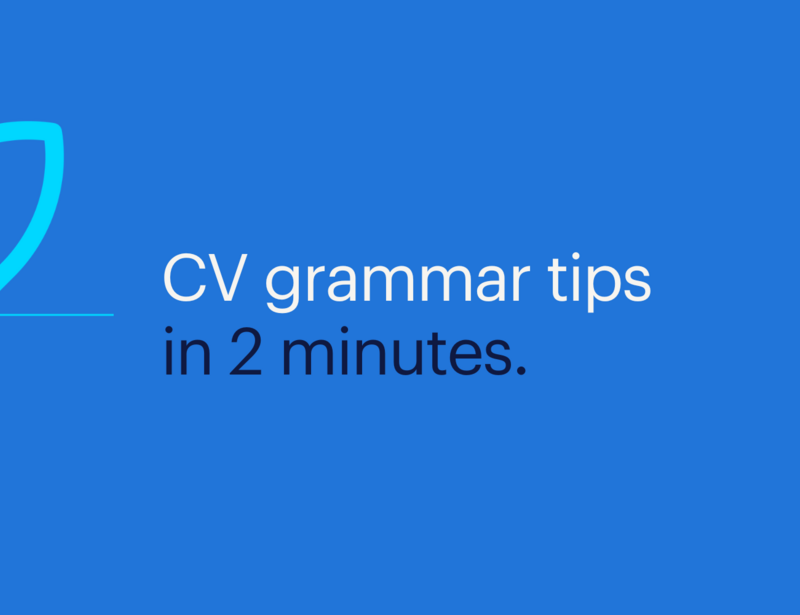why the hub?
Writing the perfect CV can be a difficult task. But with the right information and advice at your fingertips, there's nothing to stop you from creating a CV that stands out from the crowd.
CV grammar rules
Don’t get caught out by a simple spelling or grammar mistake. We all make them but when applying for a job you must make sure that both your spelling and grammar are impeccable otherwise it could cost you your dream position.
Fear not! We’ve put this video together to provide some easy tips and tricks to get you writing like a pro in no time.
10 tips to write a stand out CV.
1. write a tailored CV for every job you apply for:
There's nothing worse than a one-size-fits all approach to job applications. Your CV should be tailored to the job at hand to demonstrate that you have the relevant skills and experience to meet that particular role. Review the job description and highlight the key skills and competencies of the role. Then make adjustments to your CV that highlight those competencies and skills.
2. keep formatting simple:
Employers and recruiters are time restrained so need to be able to scan through your CV without complicated or messy formatting getting in their way. Using bold font can help draw attention to key highlights.
3. get someone else to proofread it:
When it comes to spotting typos or spelling mistakes, fresh eyes are better than your own. Poor grammar can make your CV look unprofessional so it's important to get this right. Or download a free grammar checker like Grammarly or Scribens to proofread your CV.
4. be concise:
Selling yourself can be hard, but make sure to do so as concisely as possible. Keep your personal statement to the point, avoiding long or rambling sentences that could lose the reader's attention. Our recommendation for a personal statement is 2-3 sentences. Using bullet points can also help to keep your responsibilities and achievements concise and well formatted.
5. give examples:
Back up statements you make about your professional experience with clear examples. For instance, if you're writing about having managed large budgets in the past, give indications of actual numbers and talk about what the project involved and the impact. Quantify as much as you qualify your responsibilities and achievements and include links to visual examples if it seems appropriate.
6. don't confine yourself to professional achievements:
Things like charity work and personal accomplishments such as getting certified in Google Analytics or running a marathon look great on a CV - don't think you're only allowed to list professional achievements when selling yourself!
7. be confident:
Don't be afraid to talk proudly about your achievements, whether that's great exam results or professional accolades. This is your first communicaiton with the potential employer so you want to make it count.
8. do your research:
Employers want to know that you're passionate about the prospect of working for them. Nothing says this better than someone who has done their research - demonstrating a knowledge of the company and its values will go a long way.
9. be selective:
Don't over fill your CV. If you have a long work history, go through it and select the things that are relevant to the job you're appliyng for. Most CVs should be a maximum of two pages.
10. take pride in your achievements:
Don't fall into the trap of giving companies you've worked for all the credit for big achievements - talk about how you helped make them happen.



